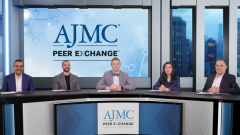
Bridging the Gaps: Health Care Professional Knowledge Gaps in AD Pathophysiology
Panelists discuss how health care professionals face educational gaps in understanding atopic dermatitis (AD) immunopathogenesis, with advanced practice providers (APPS) particularly needing additional training outside standard curricula to master biologic therapy selection.
Content above is prompted by the following:
Health care professionals face significant educational gaps regarding the immune-mediated nature of AD, which directly impacts treatment decisions. Andrew Alexis, MD, MPH, describes this advanced understanding of immunotherapies as both "a blessing and a curse;" although it leads to better therapeutic options, it requires clinicians to stay current with complex cytokine interactions and biologic mechanisms. Many practitioners struggle to understand how different biologics target specific pathways and which options suit individual patients, leading to suboptimal treatment selections.
APPs face unique challenges in acquiring immunology knowledge, as their educational programs often lack comprehensive coverage of these pathways. New-to-practice APPs must independently seek continuing education through conferences, medical literature, and collaboration with physicians. This knowledge gap particularly affects the critical early career period when building confidence and expertise. The learning typically occurs during personal time rather than structured work hours, creating additional barriers to competency development.
Pharmacists play an increasingly crucial role in bridging educational gaps through their comprehensive medication knowledge and patient monitoring capabilities. Clinical pharmacists bring valuable perspectives on drug interactions, systematic patient evaluation, and emerging therapies like glucagon-like peptide-1 agonists in inflammatory conditions. Armstrong emphasizes the importance of recognizing immunologic pathway heterogeneity among patients, preparing clinicians for potential treatment failures and the need for individualized approaches. Successful management requires telling patients about the willingness to work collaboratively to find personalized treatments.
Newsletter
Stay ahead of policy, cost, and value—subscribe to AJMC for expert insights at the intersection of clinical care and health economics.










